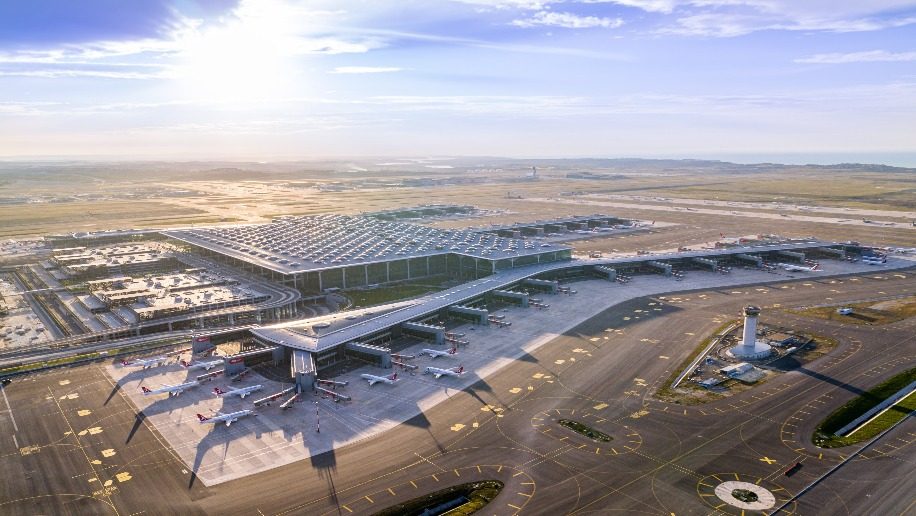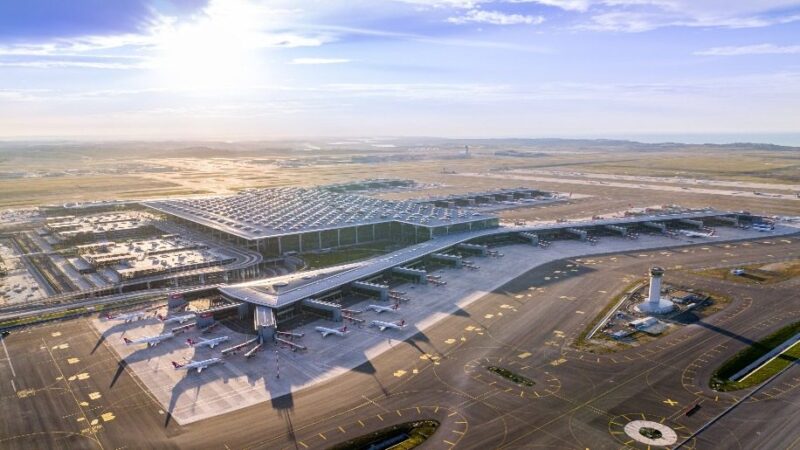Istanbul Airport Commits to Zero Emissions by Mid-Century
With several projects already underway, the giant facility expects to reach its sustainability targets “even before 2050”
September 13, 2021

Istanbul Airport has set a goal of achieving zero emissions by 2050. In announcing its commitment, IST joins an Airports Council International initiative which has been undersigned by 238 airports.
Built and operated under the umbrella of the Istanbul Grand Airport organization, the first phase of Istanbul Airport opened in November 2019, replacing the old Istanbul Atatürk Airport which has now closed, with the IATA code (IST) transferred to the new airport.
The new airport, which is now known as Istanbul Airport, is 22 miles from the city center. Istanbul also has Istanbul Sabiha Gökçen International Airport (IATA code SAW).
The mega airport is being built in four phases with the final phase set to be completed in 2028. In all, the complex will have six runways, four terminals, 233 aircraft gates, more than 500 check-in desks, and 225,000 employees. Once complete, the airport will host flights to more than 300 destinations with an annual capacity of 200 million passengers.
IGA’s current sustainability effort includes reducing the airport’s carbon footprints “within the scope of [its] environment and sustainability program,” according to the airport.
These efforts include:
- Installation of a ISO 14064 Greenhouse Gas Management System,
- Greenhouse gas calculations
- Studies into afforestation
- The use of electric vehicles
- Installation of vehicle charging stations
- Energy efficiency activities with system improvements with energy audits
- ISO 50001 Energy Management System installation
In addition, the airport has also announced its commitment to
- the use of hydrogen fuel for heating and transportation
- carbon capture technologies from flue gas
- installation of a solar power plant
- purchase of renewable energy from the electrical grid
- conversion of vehicles to electric
- the use of bio-diesel in heavy vehicles
- launching afforestation projects for carbon offsetting
“By implementing many of our projects in advance, we will have achieved our zero-emission targets even before the year 2050,” Kadri Samsunlu, airport operations chief executive officer said. “In short term, we have realized energy efficiency activities, energy audits, and system improvements, the use of electric vehicle and vehicle charging station installations and we will continue to do so in the next two to three years.”
In the longer term, Samsunlu said, “We will supply the majority of our electrical energy needs from renewable sources through the installation of solar power plants and purchases of green energy. We believe that our afforestation activities will also become a sink of significant amounts of carbon emission.”




